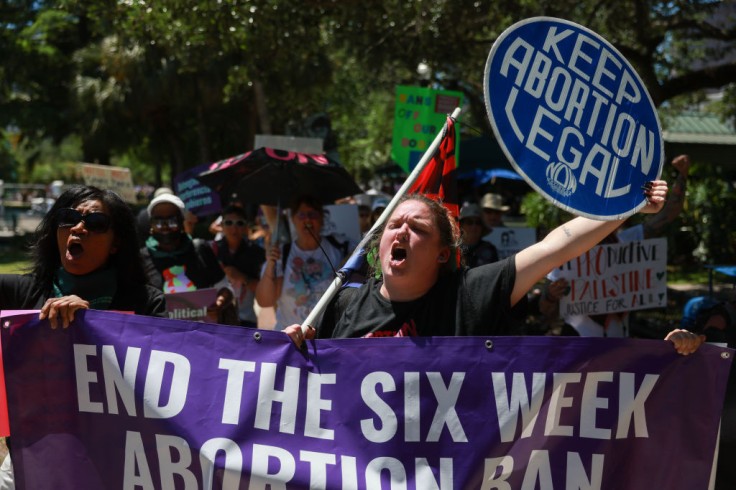
Florida officially enacted the six-week abortion ban just recently, effective at midnight on Wednesday, May 1.
This policy shift marks a departure from Florida's previous status as a haven for abortion access in the Southern region following the Supreme Court's decision to overturn Roe v. Wade.
Despite Florida having already restricted abortions after 15 weeks in 2022, neighboring states imposed even stricter regulations, prompting over 9,300 individuals to seek abortion services in Florida last year.
Florida Enacts Six-Week Abortion Ban
According to the Guttmacher Institute, a research organization advocating for abortion access, Florida witnessed a significant increase in abortions in 2021 compared to the previous year, totaling around 84,000 procedures, representing approximately 1 in 12 abortions nationwide.
The recent implementation of Florida's new abortion law aims to reverse this trend. Under this law, performing or participating in an abortion after six weeks of gestation is now a felony, with exceptions granted for cases involving rape, incest, and human trafficking up to 15 weeks into the pregnancy.
Prior to the ban taking effect, abortion providers in Florida intensified their efforts to accommodate as many patients as possible.
However, some patients were reportedly confused about the state's six-week abortion ban and its timelines, given the time elapsed since Governor Ron DeSantis signed the six-week ban.
The policy faced temporary blocks before a recent state Supreme Court ruling paved the way for its enforcement.
Florida also mandates two in-person clinic visits, separated by 24 hours, prior to an abortion-an aspect that some patients may not be aware of.
Proponents of anti-abortion rights are lauding this new law. Mat Staver, founder and chairman of Liberty Counsel, a Florida-based legal organization opposing abortion rights, commended Florida's efforts to safeguard life, especially for vulnerable individuals, and provide substantial financial resources to support women in choosing life.
With the tightening of abortion restrictions in nine Southern states, including Georgia and South Carolina, individuals seeking abortion services in Florida and nearby regions may now find North Carolina and Virginia as their closest options, where abortions are permitted up to 15 weeks into the pregnancy.
Southern Access to Abortions
Dr. Leah Roberts, a reproductive endocrinologist and fertility specialist at Boca Fertility in Boca Raton, criticized the recent anti-abortion laws enacted by Florida and other conservative states, citing their vague language and lack of understanding of medical science.
These laws, according to Roberts, not only impact women seeking therapeutic abortions for personal choice but also those facing nonviable pregnancies while trying to conceive.
Roberts highlighted the interference these laws create between patients and their healthcare providers, delaying essential care until it becomes a matter of life-saving urgency, sometimes at the cost of future fertility.
Although the new ban includes exceptions for cases involving saving a woman's life, rape, and incest, Roberts noted that healthcare professionals are still constrained from intervening in nonviable pregnancies that pose imminent risks, such as those with severe fetal abnormalities.
The requirement to wait until a nonviable pregnancy becomes life-threatening before taking action, as Roberts described, presents physical dangers and inflicts psychological trauma on mothers carrying fetuses they know will never develop into healthy babies.
Recognizing the challenges these laws pose, the Florida Access Network, a fund aiding individuals in Florida with abortion-related expenses like appointments, food, and travel, anticipates a surge in patients seeking out-of-state abortions.
Stephanie Loraine Piñeiro, the organization's executive director, expressed concern about the new reality where many people may be compelled to travel long distances for care, lacking the necessary resources and means to do so.
Related Article: Massive SNAP Payments Unleashed in May 2024: Check Your State Now!